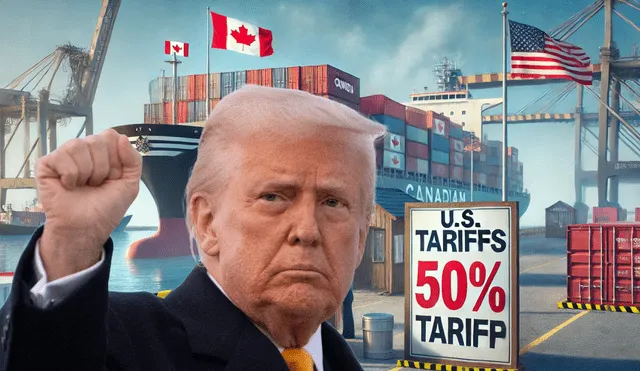Trump Slams Ontario’s 25% Electricity Price Hike as U.S.-Canada Trade Tensions Escalate
Ontario's recent decision to impose a 25% surcharge on electricity exports to the United States marks a significant escalation in the ongoing trade dispute between the two nations. This move, targeting states like New York, Michigan, and Minnesota, has raised concerns about the potential impact on energy prices and the broader economic relationship.

Premier Ford defended a surcharge on electricity exports to the U.S. as a response to Trump’s tariffs on Canadian goods. The policy adds about $7 per megawatt-hour, generating significant daily revenue. Ford vowed to maintain it until U.S. trade restrictions are lifted, criticizing the tariffs for harming both economies. He warned that rising prices would impact American families and marked a shift in Canada-U.S. trade relations. Analysts fear these measures could disrupt supply chains and have lasting economic consequences.
U.S.-Canada Trade War: Trump’s Tariff Threats and Ontario’s Electricity Surcharge
Trump condemned Ontario’s surcharge as an attack on U.S. consumers, threatening a national emergency on electricity and doubling tariffs on Canadian steel and aluminum. The move escalated trade tensions, causing market volatility and sharp declines on Wall Street. Economists warn that retaliatory measures could trigger broader trade conflicts, disrupting supply chains and business confidence. Investors fear prolonged disputes may harm economic stability. Business groups urge diplomatic talks to prevent further economic fallout.
Ontario’s IESO is enforcing the surcharge to counter U.S. tariffs, with officials claiming the revenue will offset economic losses. Energy companies are evaluating its impact on long-term agreements, while experts debate its effectiveness as a negotiating tool. Some fear it may push U.S. states to seek alternative suppliers, reducing Canada’s role in the market. Renewable energy advocates see the dispute as a call for greater energy independence in North America. If tensions continue, investments in domestic infrastructure may accelerate to reduce reliance on imports.
U.S.-Canada Energy Dispute: Economic Impact and Market Uncertainty
As the trade dispute intensifies, businesses and consumers in both countries brace for economic consequences. U.S. industries relying on stable electricity prices fear disruptions, while Canadian officials remain firm on negotiations. Market volatility is raising concerns among policymakers, warning of potential economic slowdowns. Political analysts suggest the conflict could impact upcoming elections as voters react to rising costs. With mounting pressure to de-escalate, failure to reach a resolution could lead to further economic countermeasures.
Prolonged trade tensions could disrupt North American energy markets, reducing U.S. demand for Canadian electricity and impacting Ontario’s revenue. Policy instability may discourage long-term cross-border energy agreements, creating uncertainty for businesses. Experts urge both governments to reach a compromise that ensures economic stability while addressing trade concerns. Failure to do so could lead to higher consumer costs, market volatility, and weakened trust between nations. The challenge now is to prioritize cooperation over political leverage in energy policies.
Trump Threatens Major Tariffs on EU and Canada Amid Rising Trade Tensions
U.S. President Donald Trump has announced his intention to impose large-scale tariffs on the European Union and Canada if they collaborate to harm the U.S. economy. This follows his decision to apply a 25% tariff on all automobiles exported to the U.S. starting April 2. Trump emphasized that any economic actions against the U.S. by these allies would be met with significant tariffs to protect American interests.
The European Commission and the Canadian government have expressed strong opposition to these measures, stating they will respond firmly. European leaders have voiced concerns over the potential negative impact on global trade and have called for negotiations to avoid a trade war. The Association of European Automobile Manufacturers (ACEA) has also warned about the adverse effects on both global manufacturers and the U.S. manufacturing industry, including companies like Tesla.
In response to Trump's actions, Canadian Prime Minister Justin Trudeau met with Trump at Mar-a-Lago to discuss trade and border issues. Additionally, European and Canadian leaders convened to agree on a plan to support Ukraine and coordinate European defense strategies. These diplomatic efforts highlight the growing tensions and the search for solutions to mitigate the escalating trade disputes initiated by the U.S. administration.












